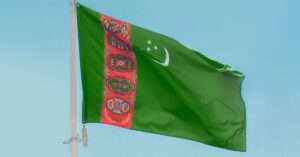Se puede acceder todos los comunicados de prensa en el sitio web de la ACNUDH.
GINEBRA (3 de junio de 2021) – Experta de la ONU ha instado hoy al Gobierno de Nicaragua a poner fin a los crecientes ataques y detenciones arbitrarias en contra de defensoras y defensores de derechos humanos.
Una nueva oleada de detenciones y ataques por parte de las fuerzas de seguridad del Estado se ha desencadenado en el marco del tercer aniversario de las manifestaciones contra las reformas al sistema de seguridad social, la falta de respuesta estatal al incendio en la Reserva Natural Indio Maíz y en respuesta de la represión violenta de manifestantes. El aniversario del 18 de abril de 2018 ha sido a menudo un punto álgido, que ha representado un aumento en la represión.
“Nicaragua no debe criminalizar prácticas legítimas como la participación en protestas pacíficas, especialmente si las personas defensoras se enfrentan a una detención prolongada”, dijo Mary Lawlor, Relatora Especial de la ONU sobre la situación de los defensores y defensoras de derechos humanos. “El Estado debe abstenerse de iniciar procesos penales basados en acusaciones genéricas o desproporcionadas”.
La Relatora intervino tras la detención de dos personas defensoras, Celia Cruz y John Christopher Cerna Zúñiga, que habrían sufrido malos tratos en prisión.
Celia Cruz, mujer trans y defensora de derechos humanos, fue detenida el 21 de abril de 2020 tras una serie de incidentes con las fuerzas de seguridad durante el aniversario de protestas en Ometepe. A pesar de su identidad de género, la Sra. Cruz fue recluida en una prisión exclusivamente para hombres, lo que la expuso a agresiones sexuales y violencia verbal. La señora Cruz fue liberada tras un año de detención, el 25 de abril de 2021.
John Christopher Cerna Zúñiga, líder estudiantil y defensor de derechos humanos, fue detenido el 20 de febrero de 2020 y fue sentenciado a 12 años de prisión por el delito de “tráfico de estupefacientes”. El señor Cerna Zuñiga alega que su detención estaría relacionada con su trabajo como defensor de derechos humanos.
De acuerdo con la información recibida, la defensora y el defensor habrían sufrido malos tratos, agresiones físicas, verbales y sexuales y falta de acceso a medicamentos y servicios médicos básicos en prisión. Además, las personas que protestan contra el gobierno habrían sido recluidas en celdas de máxima seguridad con mayor vigilancia, registros y aislamiento.
Las defensoras y defensores de derechos humanos en Nicaragua siguen buscando verdad, justicia y reparación para las personas asesinadas durante las protestas de 2018, Lawlor enfatizó que Nicaragua debe redoblar sus esfuerzos para garantizar el derecho a la reunión pacífica y el derecho a defender derechos, especialmente en el marco de las elecciones generales previstas para noviembre de este año.
“La labor de las personas defensoras es más esencial que nunca. Su papel en la protección de los derechos humanos y la asistencia a las poblaciones vulnerables debe ser protegido, no socavado”, dijo Lawlor.
La Relatora está en contacto con las autoridades nicaragüenses sobre este asunto.
El llamamiento de la experta fue respaldado por: Sr. Clément Nyaletsossi Voule, Relator Especial sobre los derechos de reunión pacífica y de asociación; la Sra. Tlaleng Mofokeng, Relatora Especial sobre el derecho de toda persona al disfrute del más alto nivel posible de salud física y mental; el Sr. Víctor Madrigal-Broloz, Experto Independiente sobre la protección contra la violencia y la discriminación por motivos de orientación sexual o identidad de género, y el Sr. Nils Melzer, Relator Especial sobre la tortura y otros tratos o penas crueles, inhumanos o degradantes.
FIN
Press Release – Nicaragua: UN expert deplores spate of attacks and arrests of human rights defenders
GENEVA (3 June 2021) – A UN expert today called on the Government of Nicaragua to put an end to increasing attacks by its security forces against human rights defenders, and to stop detaining them arbitrarily.
There has been a new spate of arrests and attacks following the third anniversary of widespread protests that broke out in April 2018 over planned social security reforms, the lack of state response to the fire in the Indio Maíz Nature Reserve and in response to the violent repression of protesters. The 18 April anniversary has often been a flashpoint.
“Nicaragua must not criminalise legitimate practices such as participation in peaceful protests,” said Mary Lawlor, UN Special Rapporteur on the situation of human rights defenders. “The State should refrain from initiating criminal proceedings based on generic or disproportionate charges.”
She drew attention to two defenders, Celia Cruz and John Christopher Cerna Zúñiga, who have reportedly suffered ill treatment in prison.
Celia Cruz, a trans woman and human rights defender, was detained on 21 April 2020 following protests in Ometepe, an island in Lake Nicaragua. Despite her gender identify, Ms. Cruz was held in an all-male prison, which exposed her to sexual assault and verbal violence. She was released more than a year later, on 25 April 2021.
John Christopher Cerna Zúñiga, a student leader and human rights defender arrested in February 2020, was sentenced to 12 years in prison on allegedly trumped-up charges of drug trafficking aimed at preventing him from working as a human rights defender.
Reports received indicate that they were ill-treated in prison, denied medical care, attacked and sexually assaulted. Also, that people who protest against the Government are put into maximum security cells with increased surveillance, searches, and isolation.
Nicaraguan human rights defenders are still trying to get truth, justice and reparations for those killed during the 2018 protests, and Lawlor said this is particularly important ahead of general elections scheduled for November this year.
“Nicaragua must redouble its efforts to guarantee the right of human rights defenders to peaceful assembly and the right to defend rights, said Lawlor. “The work of defenders is more essential than ever. Their role in protecting human rights and assisting vulnerable populations must be protected, not undermined.”
The Rapporteur is in contact with the Nicaraguan authorities on this issue.
The expert’s call was endorsed by: Mr. Clement Nyaletsossi Voule, Special Rapporteur on the right to peaceful assembly and association; Ms. Tlaleng Mofokeng, Special Rapporteur on the right to physical and mental health; Mr. Victor Madrigal-Broloz, Independent Expert on protection against violence and discrimination based on sexual orientation and gender identity and Mr. Nils Melzer, Special Rapporteur on torture and other cruel, inhuman or degrading treatment or punishment.
ENDS



